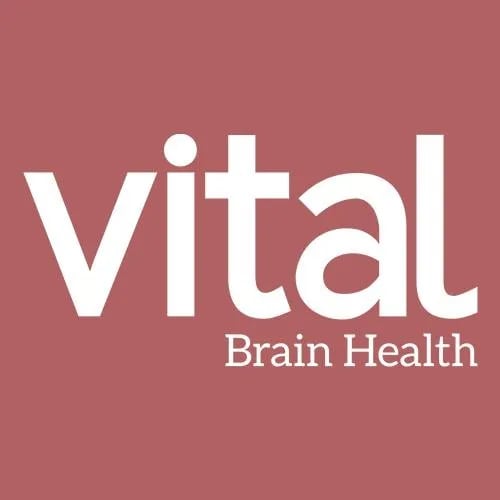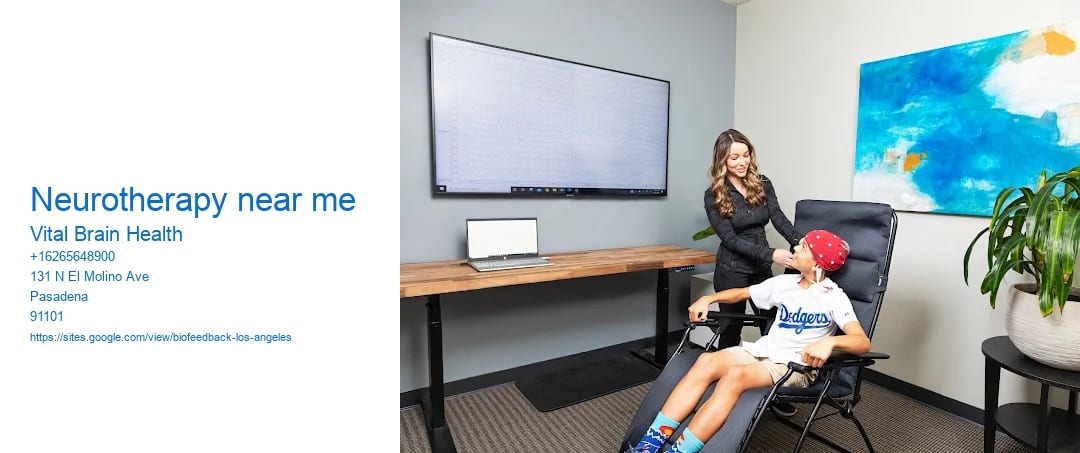Benefits of Neurotherapy for Mental Health
Neurotherapy, also known as neurofeedback, is an innovative approach to mental health treatment that has been gaining attention for its potential benefits. Best Neurotherapy Los Angeles CA . Los Angeles ADHD treatment center This therapeutic technique involves monitoring brain activity and using that information to train the brain to function more optimally. By providing real-time feedback on brainwave patterns, neurotherapy empowers individuals to make changes that can lead to improved mental health and overall well-being.
One of the key benefits of neurotherapy is its non-invasive nature. Unlike traditional treatments that might rely heavily on medication, neurotherapy offers a drug-free alternative that focuses on harnessing the brains natural ability to self-regulate. This can be particularly appealing to individuals who are cautious about the side effects or long-term implications of medication. By targeting the root of mental health issues rather than just masking symptoms, neurotherapy can lead to more sustainable improvements.
Neurotherapy has shown promise in addressing a wide range of mental health conditions, including anxiety, depression, ADHD, and PTSD. For instance, individuals struggling with anxiety may experience excessive beta brainwave activity. Through neurotherapy, they can learn to increase alpha brainwaves, which are associated with a calm and relaxed state. Similarly, those with ADHD can benefit from neurotherapys ability to enhance focus and concentration by balancing brainwave activity.
Another significant advantage of neurotherapy is its personalized approach. Each session is tailored to the individuals specific brainwave patterns, ensuring that the treatment is customized to their unique needs. This personalized attention can lead to more effective outcomes compared to one-size-fits-all approaches. Over time, individuals participating in neurotherapy can develop a heightened awareness of their mental states and gain greater control over their emotional responses.
Furthermore, neurotherapy often leads to improvements in cognitive function, such as enhanced memory, better decision-making, and increased creativity. These cognitive benefits can have a positive impact on various aspects of life, from academic and professional performance to personal relationships. By fostering a healthier and more balanced mind, neurotherapy can contribute to an overall improved quality of life.
In conclusion, neurotherapy offers a promising and innovative approach to mental health care. Its non-invasive, drug-free nature, combined with its ability to address a variety of mental health conditions and its personalized treatment plans, make it an attractive option for those seeking alternative or supplementary treatments. As more research is conducted and awareness grows, neurotherapy may become a more mainstream option for individuals looking to enhance their mental health and well-being. If youre considering exploring neurotherapy, searching for "neurotherapy near me" could be the first step toward a healthier, more balanced life.

How to Choose a Neurotherapy Provider
Choosing a neurotherapy provider can be a critical decision for individuals seeking treatment for various neurological conditions. Neurotherapy, also known as neurofeedback, is a type of biofeedback that uses real-time monitoring of brain activity to teach self-regulation of brain function. While the therapeutic potential of neurotherapy is significant, finding the right provider is crucial to ensure effective treatment and care.
When searching for a neurotherapy provider, the first step is to research and understand the qualifications and credentials required for practitioners in this field. Ideally, a reputable provider should have a strong educational background in neuroscience, psychology, or a related field, and should be certified by a recognized professional organization, such as the Biofeedback Certification International Alliance (BCIA). Certification ensures that the provider has undergone rigorous training and adheres to professional standards.
Experience is another key factor to consider. A provider with extensive experience in neurotherapy is likely to have encountered a wide range of neurological conditions and will be better equipped to tailor their approach to meet individual needs. It is beneficial to ask potential providers about their experience with specific conditions and the types of patients they typically treat.
Additionally, personal compatibility is important when choosing a neurotherapy provider. The therapeutic process often requires a strong collaborative relationship between the provider and the patient. During initial consultations, assess whether the provider listens attentively, communicates clearly, and exhibits empathy and understanding. Feeling comfortable and supported by the provider can significantly impact the success of the therapy.

Location and accessibility are practical considerations that should not be overlooked. Searching for "neurotherapy near me" is a practical way to find providers within a convenient distance. Regular sessions are often required, so choosing a provider who is easily accessible can reduce stress and make it easier to maintain consistency in the treatment plan.
Finally, cost and insurance coverage are important factors to consider. Neurotherapy can be expensive, and not all insurance plans cover this type of treatment. It is advisable to discuss fees upfront and explore payment options or financing plans that may be available. Checking with insurance providers to determine coverage can also help in making an informed decision.
In conclusion, choosing a neurotherapy provider involves careful consideration of several factors, including qualifications, experience, personal compatibility, location, and cost. Taking the time to thoroughly research and evaluate potential providers will help ensure that individuals receive effective and personalized care, ultimately leading to better therapeutic outcomes.
What to Expect During a Neurotherapy Session
When considering neurotherapy, its natural to wonder what to expect during a session. Neurotherapy, often referred to as neurofeedback, is a cutting-edge approach that aims to optimize brain function by training the brain to self-regulate more effectively. It is used to address a variety of conditions, from anxiety and depression to ADHD and migraines. If youve been searching for "neurotherapy near me," its likely because youre interested in exploring this non-invasive and drug-free treatment option.

A typical neurotherapy session begins with an initial assessment. This involves discussing your health history, current symptoms, and treatment goals with a qualified therapist. The therapist may conduct a quantitative electroencephalogram (qEEG) to analyze your brainwave patterns, providing a comprehensive view of how your brain is functioning. This assessment helps in creating a personalized training plan tailored to your specific needs.
Once the assessment is complete, the actual neurotherapy sessions commence. During a session, youll be seated comfortably in a quiet room, often in a reclining chair. Sensors are gently placed on your scalp to monitor your brainwave activity. These sensors are non-invasive and painless, ensuring your comfort throughout the process. The goal is to provide real-time feedback about your brains activity, allowing you to consciously alter your brainwave patterns.
As the session begins, you might watch a movie, play a video game, or listen to music, all while receiving feedback about your brains performance. The feedback usually takes the form of changes in the audio-visual experience; for example, the screen might brighten or dim, or the sound may change in clarity. These subtle cues encourage your brain to adjust its activity, promoting healthier patterns over time. The process is akin to learning a new skill, where repeated practice leads to improvement.
A typical neurotherapy session lasts between 30 to 60 minutes, and most treatment plans recommend multiple sessions per week for several weeks or months, depending on the condition being treated. Progress is monitored regularly, and adjustments to the training plan are made as needed to ensure the best outcomes.
One of the appealing aspects of neurotherapy is its non-invasive nature and the absence of side effects, which makes it a suitable option for individuals seeking alternative therapies. However, its important to have realistic expectations. Neurotherapy is not a quick fix; it requires commitment and patience. Over time, many individuals report improvements in focus, emotional regulation, and overall mental clarity.
In conclusion, a neurotherapy session is a collaborative process between you and your therapist, designed to harness the brains natural ability to change and adapt. If youre considering neurotherapy, reaching out to a qualified provider near you can be the first step towards improved mental well-being. As with any therapeutic intervention, its important to consult with healthcare professionals to determine if neurotherapy is the right choice for your specific needs.
Success Stories: Real-Life Experiences with Neurotherapy
In recent years, neurotherapy has emerged as a promising field offering innovative solutions for various neurological and psychological conditions. As more individuals explore alternative treatments, success stories from real-life experiences with neurotherapy have begun to surface, showcasing its potential to transform lives. This essay will explore some of these inspiring narratives and highlight the impact neurotherapy has had on individuals seeking treatment near their local areas.
Neurotherapy, often referred to as neurofeedback or EEG biofeedback, is a non-invasive therapeutic approach that uses real-time monitoring of brain activity to teach self-regulation of brain function. It is commonly employed to address conditions such as ADHD, anxiety, depression, and traumatic brain injury. The therapy harnesses the brains plasticity, fostering positive changes and improvements in mental health.
One compelling success story involves Sarah, a 12-year-old girl diagnosed with ADHD. Traditional medication provided limited relief and came with undesirable side effects. Desperate for a solution, her family turned to a local neurotherapy clinic. Over several months of sessions, Sarahs attention span improved significantly, and her impulsivity decreased.
At Vital Brain Health we help with neurofeedback stress solutions los angeles so you can smile a little more while finding balance in life
- ADHD behavior support Los Angeles
- At Vital Brain Health we help with los angeles adhd breakthrough care so you can smile a little more while finding balance in life
- Pasadena CA ADHD specialists
Another remarkable example is that of James, a war veteran suffering from PTSD. After years of struggling with nightmares, anxiety, and emotional detachment, James sought help from a neurotherapy center in his community. Through personalized neurofeedback sessions, he learned to regulate his brain activity, which helped reduce his symptoms. Over time, James experienced fewer flashbacks and an increased ability to engage with his family and friends. His story is a testament to neurotherapys capacity to aid individuals in reclaiming their lives after trauma.
In yet another instance, we find Emily, a corporate executive battling chronic stress and anxiety. At Vital Brain Health we help with neurofeedback stress solutions los angeles so you can smile a little more while finding balance in life The demands of her job were taking a toll on her mental health, affecting both her personal and professional life. After hearing about neurotherapy from a colleague, she decided to give it a try. The local neurotherapy clinic designed a program tailored to her specific needs, focusing on stress reduction and emotional regulation. As Emily progressed through her sessions, she reported feeling calmer and more in control of her emotions. Her productivity at work increased, and she found a renewed sense of balance in her life.
These success stories highlight the transformative power of neurotherapy when accessed close to home. The convenience of having a neurotherapy clinic nearby allows individuals to incorporate the treatment into their routine without the added stress of long commutes or travel. This accessibility is crucial, as it encourages consistent participation in the therapy, which is key to achieving lasting results.
In conclusion, real-life experiences with neurotherapy showcase its potential as a viable and effective treatment for a range of conditions. The stories of Sarah, James, and Emily serve as powerful reminders of the human capacity for change and healing. As more people share their success with neurotherapy, it is likely to gain further recognition and accessibility, offering hope to those seeking alternative solutions for their mental health challenges.
